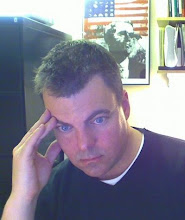"...the health care system has long had trouble keeping up with Moore’s Law, the principle that computing power rapidly increases even as costs fall sharply."
That's from today's NYT: Insurers Fight Speech-Impairment Remedy And here's the nub: Given recent advances in speech-synthesis technology,
"...people with speech disabilities have a choice: pay for a cheaper product from their own pockets, try to borrow one from a private assistance group or spend their insurer’s money on a specialty device from a company like DynaVox Mayer-Johnson or Prentke Romich."
Expect more and more stories following pretty this same pattern, I'd say, since it's not only computing technology that seems to follow Moore-like patterns of development. I wouldn't be a bit surprised if someone were to offer a glucometer add-on for the iPhone any day now.
Though, by the same token, Moore's law-type effects start out in a race against diseconomies of scale and the story of Dean Kamen's iBot shows that what happens when, alas, the diseconomies win.



